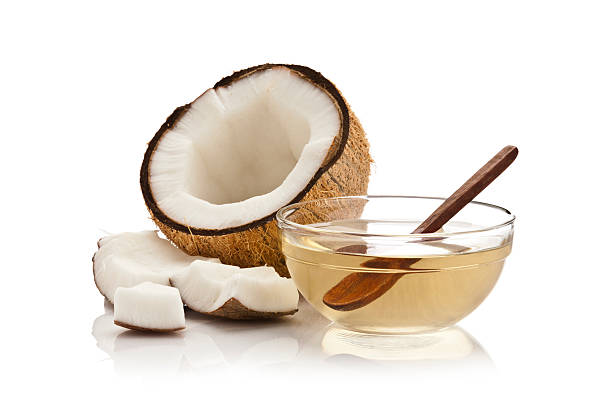Add description, images, menus and links to your mega menu
A column with no settings can be used as a spacer
Link to your collections, sales and even external links
Add up to five columns
Add description, images, menus and links to your mega menu
A column with no settings can be used as a spacer
Link to your collections, sales and even external links
Add up to five columns

The Ultimate Guide to Coconut Oil for Your Dog: Unlock the Benefits Today!
September 11, 2023 3 min read
Introduction
Coconut oil has been on the rise as a multi-purpose elixir for both humans and their four-legged friends. But how much do you really know about this natural wonder when it comes to enhancing your dog's well-being? Here's a comprehensive guide to coconut oil and its array of benefits for your furry friend, including how to properly integrate it into their regimen.
Should You Give Coconut Oil to Your Dog?
The concise answer: Absolutely, you can! Coconut oil serves as a powerful supplement for dogs, enhancing digestion, bolstering their coat, and acting as a shield against infections. However, the golden rule is moderation; overindulgence in even the most beneficial substances can lead to undesired outcomes.
The Health Boosting Components of Coconut Oil
You might be asking, "Isn't fat harmful?" Not all fats are created equal. Coconut oil is primarily made up of saturated fats, accounting for over 90%, and it's recognized as a "superfood."
The Powerhouse: Medium Chain Triglycerides (MCTs)
Medium Chain Triglycerides or MCTs are the shining stars in coconut oil. These good fats offer a myriad of health advantages such as improved digestion, bolstered immune system, optimized metabolic rates for weight management, and enhanced skin and fur health.
MCTs include a range of fatty acids like lauric, capric, caprylic, myristic, and palmitic acids. Among these, lauric acid stands out for its anti-fungal, antibacterial, and antiviral attributes. MCTs also offer an instant energy boost, thereby making your lethargic pup more active and aiding in weight loss.
Fun Ways to Incorporate Coconut Oil in Your Dog's Diet
Now that we've covered the science, let's delve into some exciting methods to include this superfood into your dog’s meals!
Key Advantages of Coconut Oil for Dogs
Skin and Coat Benefits
- Combats eczema and itchiness
- Controls allergies and skin irritations
- Reduces odors
- Gives a sleek, shiny coat
Digestive Health
- Optimizes nutrient absorption
- Addresses inflammatory bowel conditions
- Neutralizes bad breath
Superfood Perks
- Assists in shedding weight
- Serves as a potent antibacterial and antiviral agent
- Manages diabetes and promotes thyroid function
- Enhances energy levels
Appropriate Dosage of Coconut Oil for Dogs
Begin with a modest dose to allow your pet's system to adapt. Starting too high can result in gastrointestinal issues like diarrhea. Here’s a quick breakdown:
- Small dogs: 1/4 teaspoon daily
- Large dogs: 1 teaspoon initially
- Once adapted, the general dosage is about 1 teaspoon for every 10 pounds of body weight, or 1 tablespoon per 30 pounds.
Topical Applications of Coconut Oil
Applying coconut oil directly onto your dog's fur and skin can dramatically enhance their skin health, making it supple and strong. An occasional coconut oil massage can do wonders for your dog's skin, coat, and overall well-being.
Side Effects to Watch For
While generally safe, some dogs may experience diarrhea or greasy stools if coconut oil is introduced too rapidly into their diet. Always start with smaller amounts to gauge your pet's reaction.
Products Infused with Coconut Oil for Dogs
There's a variety of pet treats that come with the added goodness of coconut oil. Your dog will not only find these delicious but will also enjoy the numerous health benefits.
Final Thoughts
While scientific studies on coconut oil for dogs are not extensive, many veterinarians and pet owners have observed its multiple benefits. As always, individual experiences may vary, so it's best to monitor how your pet reacts to this natural supplement.
Share this guide with fellow dog lovers if you find it useful! For any remaining questions about coconut oil, check out our extended FAQ blog.
Meet the Author

Trevor Crotts
Pet Industry Expert & Writer
Trevor is a highly-respected writer and product designer with over a decade of experience in the pet industry. He is passionate about enhancing the lives of pets and pet owners through effective, scientifically-backed solutions.
Subscribe
Sign up to get the latest on sales, new releases and more …
